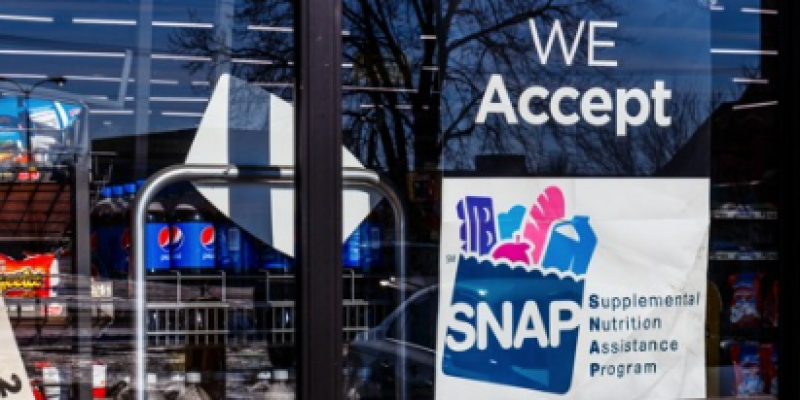The U.S. Department of Agriculture (USDA) is reporting an error rate of 7.36 percent for its Supplemental Nutrition Assistance Program (SNAP) for fiscal year 2019.
Despite the error rate, and after state government shutdowns over the coronavirus, the federal government significantly extended emergency SNAP funding for states to distribute.
The error-rate analysis covers Oct. 1, 2018 through Sept. 30, 2019, before COVID 19 relief money was implemented. The percentage is based on a sampling, and does not represent the entire scope of the problem, the USDA said. It represents an increase from its fiscal 2018 error rate of 6.8 percent.
The error rate is not a fraud rate, USDA explains. It is a measure of how accurately states determine eligibility and benefit amounts. Error rates include incorrect amounts paid to an eligible client, payments made to a client incorrectly determined as eligible, and payment for which insufficient or no documentation was found.
According to the report, in 2019, 52 percent of incorrect payments were caused by state agency error; 48 percent were caused by recipient error. To correct the errors, USDA is issuing $43.5 million in sanctions to 12 high-error states, seven of which were previously sanctioned last year.
The sanctioned states must either pay the full sanction amount immediately to the U.S. Treasury Department, the USDA says, “or promptly reinvest half of these funds in FNS-approved actions to reduce errors and pay the remainder if accuracy does not improve.”
States with the highest error rates are Rhode Island (22.66 percent), Maine (19.12 percent), the District of Columbia (15.74 percent), Delaware (13.16 percent), and Iowa and Michigan at roughly 12.44 percent each.
“The payment accuracy data released today are a clear message that states must redouble efforts to ensure taxpayer-funded benefits for households in need are determined accurately, every time,” USDA’s Food, Nutrition and Consumer Services Deputy Under Secretary Brandon Lipps said in a statement.
FNS says it is providing state and local partners with detailed information and specific recommendations designed to improve their payment error rates.
The error rate amounts to “$4 billion annually in food stamp funds being diverted away from the truly needy and wasted on people who are not eligible,” Sam Adolphsen, policy director at the Foundation for Government Accountability (FGA), said in a statement.
Instead of taking action to correct the problem, Democratic legislators have proposed bills “to keep the Trump administration from implementing rules that will clean this mess up and protect SNAP resources for the truly needy,” Adolphsen says.
In Texas, Gov. Greg Abbott announced more than $1 billion in “pandemic food benefits for Texas families” was being administered. In Louisiana, families whose children were receiving school lunches have been receiving an additional $285 per child in SNAP benefits.
Texas’ SNAP error rate is 6.6 percent; Louisiana’s is 3.79 percent. “With states handcuffed and lacking the tools they need to ensure the integrity of their welfare programs – and new programs paying people more money to stay at home than they can make working – the economic recovery American families and small businesses deserve is being cut off before it can even start,” Nick Stehle, vice president of communications at FGA, told the Center Square.
By July 11, the Texas Health and Human Services Commission (HHSC) will provide approximately $182 million in emergency SNAP food benefits to more than 950,000 households who will receive additional money on their Lone Star Card.
The emergency July allotments are in addition to the $628 million in benefits previously provided to Texans in April, May and June, the governor’s office said.
In Louisiana, roughly 611,430 students who have been out of school since March 16 have been receiving additional SNAP benefits through the USDA’s Pandemic EBT (P-EBT) program. These students have received an additional $285 per child. Louisiana officials estimate the state has distributed nearly $174.3 million via P-EBT.
USDA Secretary Sonny Perdue sent letters to governors of 14 states with the most significant error rates, and notified Congress that the USDA will withhold the usual 50 percent reimbursement of state SNAP agency administrative funds for states that fail to comply with the agency’s corrective action plan.
Perdue also called on Congress to fund a fiscal 2021 budget proposal for electronic income verification. Errors from the lack of timely and accurate wage reporting represent 40 percent of all errors in the program, Perdue said. The USDA’s budget proposal addresses the largest single source of errors and reduces the burden on recipients to report, he adds.
Advertisement
Advertisement

